Description
Minimizes noise and achieves maximum silence, building on
digital source
reproduction technology and knowhow accumulated over many years.
This new sound transmission interface, Technics Digital Link, supports audio
signals and also eradicates inter-channel effects by transmitting the left and
right channel signals separately. Technics Digital Link has achieved an ideal
amplifier configuration, minimizing any degradation between the pre-amplifier
and the power amp, and resulting in superb stereo separation and reproduction
of even the most subtle signals. The result is a more detailed and dynamic
sound.
for Smartphones
- –
Simple and Intuitive Menu
- – DLNA
Playback
- – USB
Memory Playback
- –
Multi Device Playlist Functions *1
- – Bass
/ Mid / Treble Control on Technics Products *2
*2 Will not function when using Bluetooth® as a music source.
Aluminium Foil Capacitor, Large-capacity Capacitor
Technics Digital Link (Original Digital Signal
Transmission)
Some systems use a digital link between source component and
pre-amplifier, keeping the digital signal pure as long as possible: Technics
Digital Link goes further. It has eliminated the volume control function from
the pre-amplifier, and instead transmits the volume control information,
together with the audio signal, directly to the power amplifier in digital
form. The power amp’s jitter reduction circuit reduces any effect of jitter in
signal transmission, then performs the volume control immediately before the
PWM converter.
Digital Noise Isolation Architecture
The SU-R1 Network Audio Control Player receives audio
signals from various digital content devices, such as NAS, PCs, USB memory
devices and digital interfaces. Many of these digital content storage systems
were originally designed for use with PCs, so low noise – which is required for
pure audio reproduction – was never a main design concern. To handle these
often noisy sources, the SU-R1 isolates the interfaces for these media to
exclude external electrical interference, and also employs a jitter remover,
thus offering clear and stable sound, free from noise and distortion.
Jitter Remover
Common Mode Filter
SPDIF Pulse Transformer
Power Conditioner (USB-A)
Power Conditioner (USB-B)
Separated Analog/Digital Power Supply
Dedicated low-noise R-core transformers* with excellent
regulation characteristics are used for the analog and digital circuits, and
the power supply is further isolated to exclude any digital noise from the
analog circuits. *R-core transformer is a trademark of Kitamura Kiden Co., Ltd.
Technics Music App
The Technics Music App enables you to select a music source
and playback equipment, and create playlists easily and comfortably on the
screen of a tablet or smartphone. The Music App screen displays the music
stored on a connected DLNA-compatible server, content stored on the device
running the App, and music files on connected USB memory devices, giving you
integrated playback control. Used with the SE-R1 or SU-C700, the Technics Music
App not only allows you to control the volume and playback operations, but also
lets you adjust the Bass, Mid and Treble levels.
Main Features
*1 Unable to include USB memory as multi device playlist.
Ultra Low Distortion Oversampling Digital Filter
An oversampling digital filter, incorporating an original
Technics algorithm, shifts digital noise to -160 dB or lower, thus moving any
potential distortion far beyond hearing and leaving a rich, detailed sound.
Virtual Battery Operation
Virtual Battery Operation removes noise generated by the
power supply circuit by using a capacitor to fulfil the function of a battery:
during playback, this capacitor provides the power, taking the charging system
out of circuit, and preventing supply noise from mixing into the audio signal.
High Quality Analog I/O Circuit
The SU-R1 features Digital Noise Isolation Architecture, a
high-precision clock generator and independent high-precision Burr-Brown
PCM1792 (Texas Instruments) digital to analog converters for left and right
channels. The circuits after the D/A converter are of a balanced configuration,
using non-magnetic film resistors, low equivalent series resistance capacitors
and a high-quality LME49720 (Texas Instruments) OP amp. Analog inputs are
converted to digital with the high-precision Burr-Brown PCM4220 (Texas Instruments)
192-kHz/24-bit A/D converter, allowing high-purity sound with digital and
analog sources alike.
Burr-Brown PCM1792
Burr-Brown PCM4420
I / V Conversion, Analog Output Nonmagnetic Carbon Film
Resistor
Power Supply Circuit Low-magnification Foil Electrolytic
Capacitor,
High Res Re-master
Technics has developed signal processing to increase both
sampling frequency and bit-depth: the High Res Re-master system converts audio
signals to high-resolution at up to 192 kHz/32 bits, to bring the listener
closer to the original music.
Optimally Activated Circuit System
The Optimally Activated Circuit System allows the shutdown
of various digital modules – such as those used for display, network, USB and
digital interfaces – to minimize the noise generated when music is playing.
Various Inputs
The pre-amp section supports a wide range of digital input —
DLNA, USB memory devices, USB-DAC, SPDIF, AES/EBU — and two sets of analog line
signals. It converts analog signals to 192-kHz/24-bit PCM signals using the
high-precision A/D converter. The full-digital system achieves high-purity
reproduction from any content. The USB-DAC supports 384-kHz/32-bit PCM,
2.8-MHz/5.6-MHz DSD native playback (analog output) and asynchronous
transmission. The digital input supports coaxial 192-kHz/24-bit PCM and optical
96-kHz/24-bit. For DLNA/USB memory device playback, DSD (2.8-MHz/5.6-MHz),
WAV/AIFF/FLAC of up to 192 kHz 24 bits, and ALAC of up to 96 kHz 24 bits can be
reproduced.
|
Input Terminal |
File Format |
Sample Rate |
Bit Depth |
Bit Rate |
|
Network / USB-A |
MP3 |
32 / 44.1 / 48 kHz |
16 bit |
16-320 kbps |
|
WMA |
32 / 44.1 / 48 kHz |
16 bit |
16-320 kbps |
|
|
AAC |
32 / 44.1 / 48 / 88.2 / 96 kHz |
16 bit |
16-320 kbps |
|
|
WAV |
32 / 44.1 / 48 / 88.2 / 96 / 176.4 / 192 kHz |
16 / 24 bit |
– |
|
|
FLAC |
32 / 44.1 / 48 / 88.2 / 96 / 176.4 / 192 kHz |
16 / 24 bit |
– |
|
|
AIFF |
32 / 44.1 / 48 / 88.2 / 96 / 176.4 / 192 kHz |
16 / 24 bit |
– |
|
|
ALAC |
32 / 44.1 / 48 / 88.2 / 96 kHz |
16 / 24 bit |
– |
|
|
DSD |
2.8224 / 5.6448 MHz |
1 bit |
– |
|
|
Digital AES / EBU Input |
PCM |
32 / 44.1 / 48 / 88.2 / 96 / 176.4 / 192 kHz |
16 / 24 bit |
– |
|
Digital Coaxial Input |
PCM |
32 / 44.1 / 48 / 88.2 / 96 / 176.4 / 192 kHz |
16 / 24 bit |
– |
|
Digital Optical Input |
PCM |
32 / 44.1 / 48 / 88.2 / 96 kHz |
16 / 24 bit |
– |
|
USB-B |
PCM |
32 / 44.1 / 48 / 88.2 / 96 / 176.4 / 192 / 352.8 / 384 kHz |
16 / 24 / 32 bit |
– |
|
DSD |
2.8224 / 5.6448 MHz |
1 bit |
– |
Noiseless Signal Technology
Digital Noise Isolation Architecture
Virtual Battery Operation
Ultra Low Distortion Oversampling Digital Filter
High Res Re-master
Optimally Activated Circuit System
Technics Digital Link
Separated Analog/Digital Power Supply
High-quality Analog I/O Circuit
High Rigidity Metal Double Chassis
Technics Definitive Design
Aluminium Plain Miter Joint
Multi Control Knob
Symmetric Structure
Frequency Response
2 Hz – 90 kHz (-3 dB)
Dynamic Range (IHF-A)
BALANCED 118 dB, UNBALANCED 115 dB
Signal to Noise Ratio (IHF-A)
BALANCED 118 dB, UNBALANCED 115 dB
THD+N
0.0008% (1 kHz, 0 dB)
Analog Input Terminal
LINEx2
Digital Input Terminal
AES/EBU Digital x 1, Coaxial Digital x 3, Optical
Digital x 1, USB-A, USB-B
USB-A
-
iPod/iPhone/iPad
Yes
Support Codec
USB-DAC (USB-B)
-
USB Audio Class Specification
USB Audio Class 2.0, Asynchronous Mode
Support Codec
-
&
-


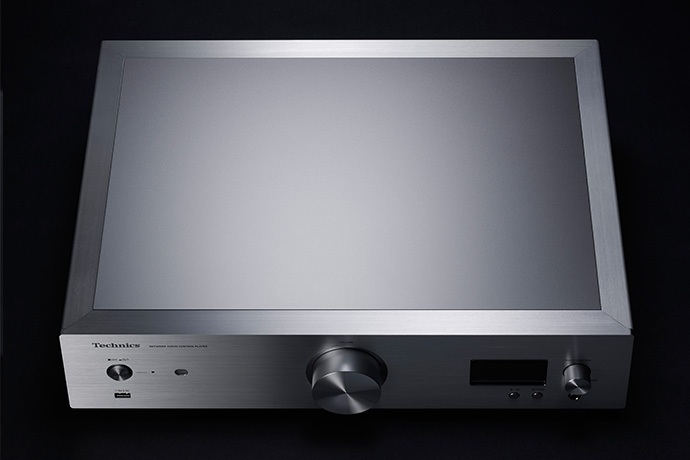
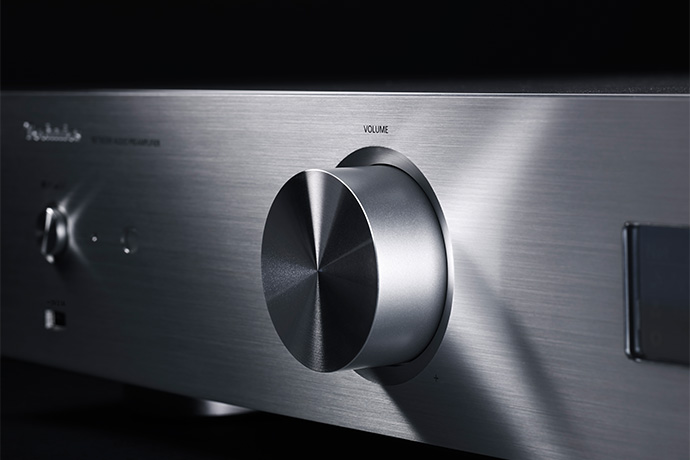
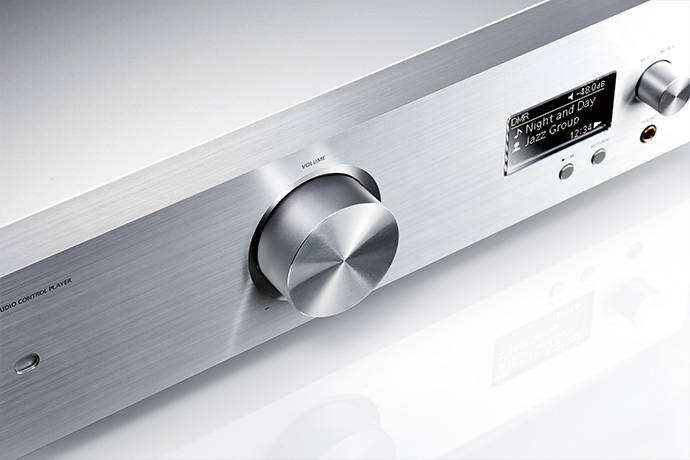
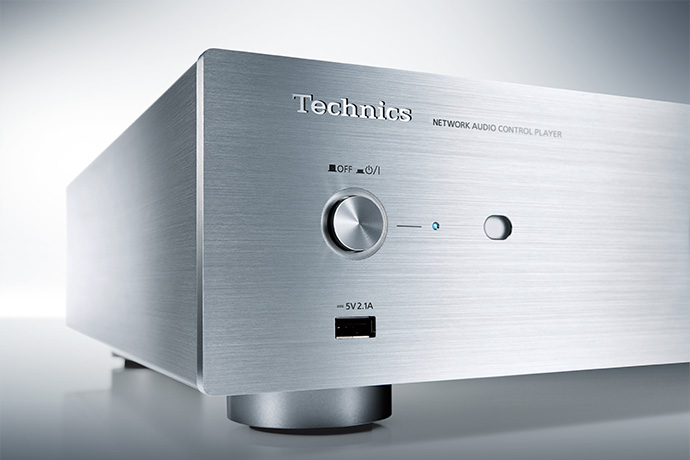
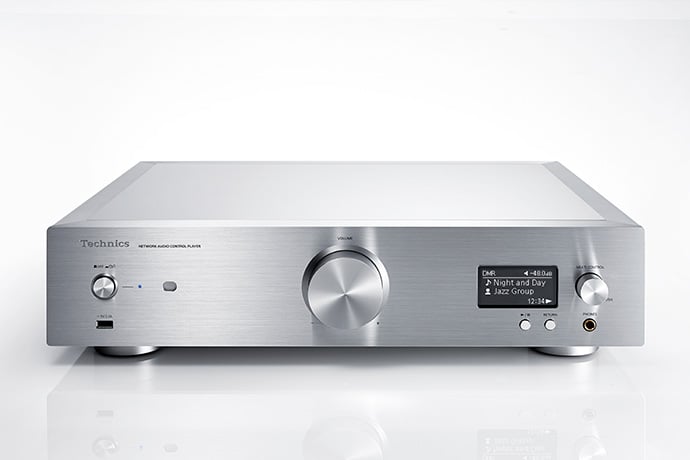

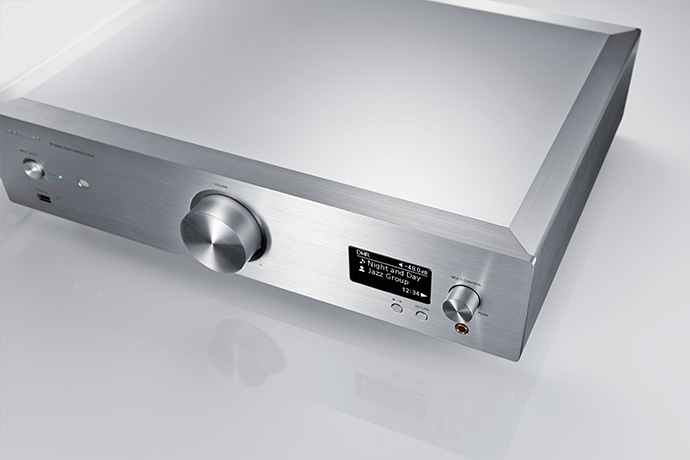
Reviews
There are no reviews yet.